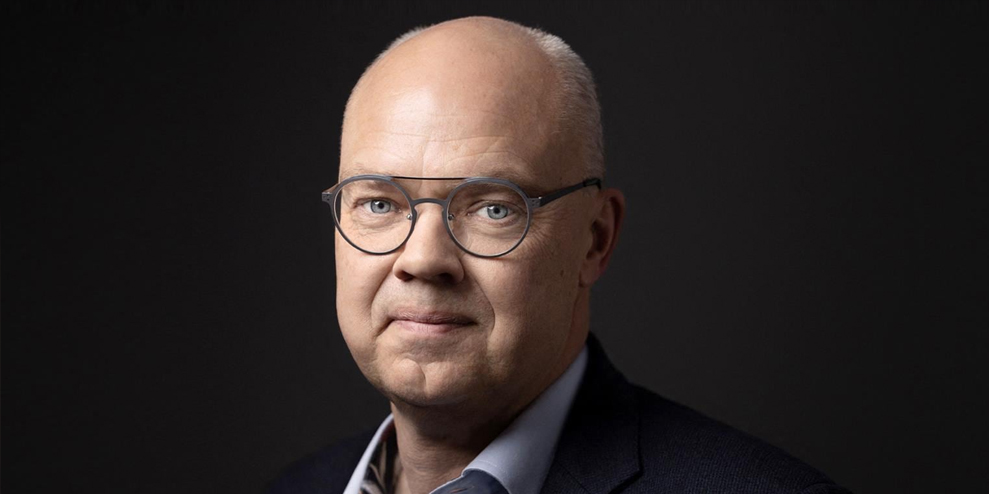Poul Weihrauch, CEO of Mars, Incorporated, on prioritizing what matters and preparing for the challenges of tomorrow.
With more than 140,000 associates across 80 countries, Mars is one of the largest privately owned businesses in the world. A global leader in pet care, confectionery, and food, the company attributes much of its success to its enduring principles and forward-looking purpose: “The world we want tomorrow starts with how we do business today.” We spoke with CEO Poul Weihrauch about his commitment to the company’s people, principles, and purpose—and what executives need to get right to compete in an increasingly volatile world.
What are the key ingredients to Mars’s success?
Poul Weihrauch: I would say three main things: our focus on people, our Five Principles, and both the freedom and willingness to transform. We have always been 100 percent committed to all our people—from line managers to top executives—and their development. We call them associates, not employees, as the relationship is of a higher order. Since joining the company more than 20 years ago, I have had far more access to training and mentorship than I have experienced at any other company. It’s our core competency.
Our Five Principles—Quality, Responsibility, Mutuality, Efficiency, and Freedom—are at the center of every decision we make . Mutuality has been a cornerstone of our company since 1947 when Forrest Mars Sr wrote that the objective of a company is to create a mutuality of benefits for a broad range of different groups. Today, you would call it a stakeholder approach. We care deeply about creating value for our customers, associates, our owners (the Mars family), and the communities in which we operate. It’s important to me that I can stand before any group of Mars associates and share how the Mars family is contributing to the community and the planet.
Our Five Principles—Quality, Responsibility, Mutuality, Efficiency, and Freedom—are at the center of every decision we make.
Finally, as a privately owned family business, we have the freedom to shape our future. Our owners take a long-term perspective when it comes to investing in our people and business—and they are prepared to transform the organization as needed. That empowers our associates to innovate, act, and grow in service of our common goals.
What are the biggest challenges and opportunities that you see in the coming years?
Poul Weihrauch: Some things will continue to change significantly—the geopolitical situation, the technology landscape, workforce demographics, as well as the state of our planet. Other things will remain the same. Humans will continue to seek connection and meaning in their lives. Empathy will matter more than ever, especially in an increasingly polarized world. Businesses must focus on its customers and consumers—the minute you lose that, you’re out of the game.
What does this mean for us? First, our values and purpose must continue to serve as our moral compass. We could organize our company a hundred different ways, but our purpose is what tells us whether we’re moving in the right direction. Second, the organization chart of the 1850s that had hierarchy at its core is no longer relevant. We need to build for communities, not for hierarchies. Third, sustainability must be embedded throughout the organization—not in a single department, but as part of everything we do.
We could organize our company a hundred different ways, but our purpose is what tells us whether we’re moving in the right direction.
We need to get all three of these imperatives right. Nobody has all the answers, but we can take meaningful steps towards these objectives every year, measure our progress, and hold ourselves accountable.
Having led a successful transformation, what advice would you give other leaders who want to transform their organization and operating model?
Poul Weihrauch: To start, the transformation must be anchored in the purpose of the organization. That purpose has to be built on an intrinsic truth, not just a slogan on the wall. For example, when we transformed our pet care business, we organized our operating model around the purpose of creating a better world for pets.
Next, I would ask CEOs, “Are you ready to transform?” We sometimes delegate transformations to HR or others, but that doesn’t work. As a CEO, you must personally lead transformation and be willing to transform yourself. Only then will the rest of the company follow your lead.
I would also tell CEOs to listen to the next generation. Listen with your head and heart. During our pet care transformation, we went a few levels down to our more junior managers and asked them to share their insights and help shape the future organization. We asked them to travel the world and visit the best-run organizations. One of the key ingredients they came back with was purpose. The source of our success sits within our own ranks.
Finally, I would advise organizing the business around a set of very clear assumptions, which provide a clear North Star that does not change throughout the transformation. Your people, your customers, and your purpose should be at the center of this and shine a light on the transformation path ahead.
—
This article first appeared on www.mckinsey.com
Seeking to build and grow your brand using the force of consumer insight, strategic foresight, creative disruption and technology prowess? Talk to us at +971 50 6254340 or engage@groupisd.com or visit www.groupisd.com/story

